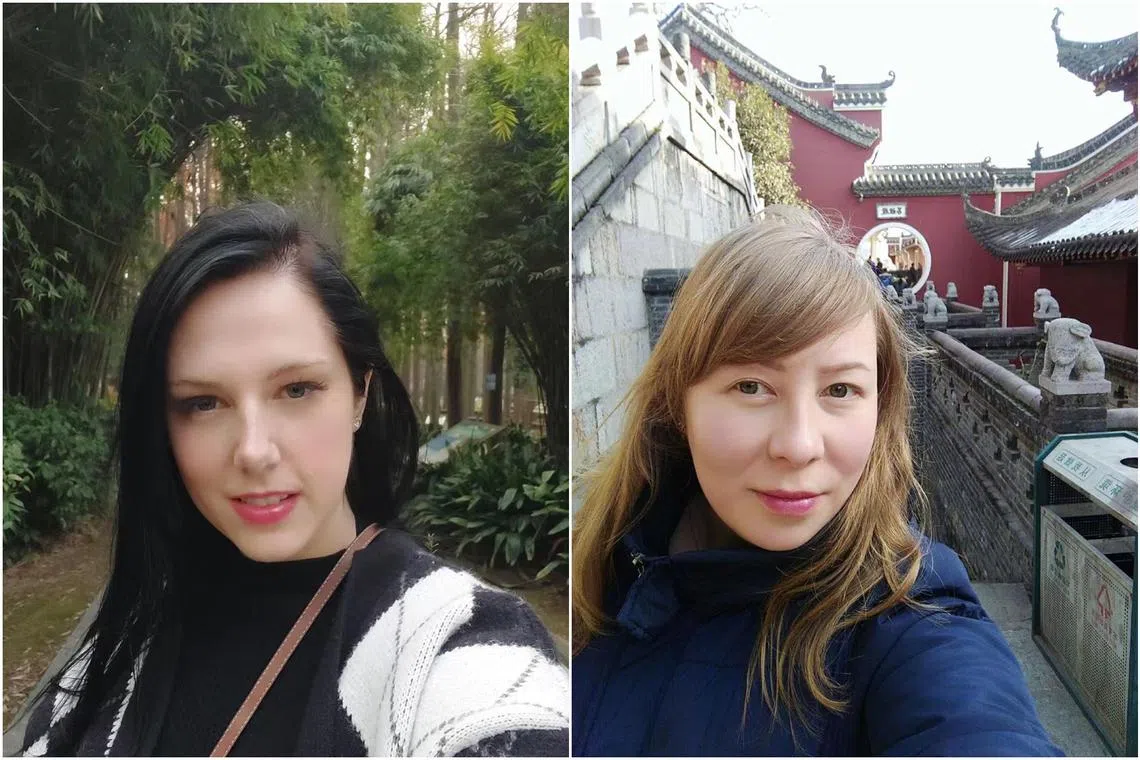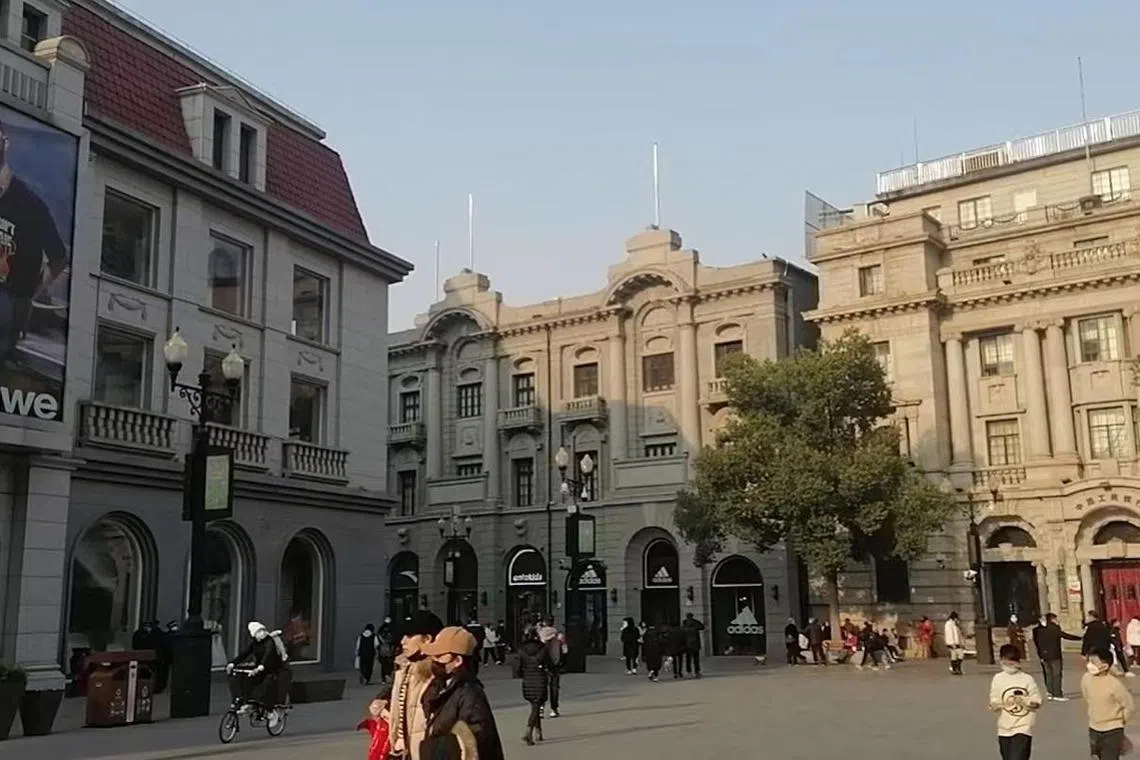International students find a different Wuhan upon return
Sign up now: Get insights on Asia's fast-moving developments

International school administrator Jocelyn Potgieter (left) and Russian doctoral candidate Natalia Loseva.
PHOTOS: COURTESY OF JOCELYN POTGIETER, NATALIA LOSEVA
BEIJING - Kept out of China for the past 2½ years, doctoral candidate Natalia Loseva finally returned to the country in September 2022 on a special charter flight organised by the Russian Ministry of Education.
After serving an eight-day quarantine in Harbin, the 33-year-old finally made it back to Wuhan in October.
She is among thousands of foreigners who have returned to the central Chinese city in recent months after Beijing began easing pandemic-linked travel restrictions, allowing certain groups of students to return.
Since Sunday, all quarantine requirements have been scrapped, after nearly three years of strict protocols that made international travel a logistical nightmare.
Pre-pandemic, Wuhan had the country’s highest concentration of international students. The city was particularly popular among South Asian medical students, for whom doing the same course in their home countries was more expensive.
There are no official numbers on how many students have been allowed to return, but it is estimated that thousands have returned via special charter flights.
“For me, it was putting a close to an unfinished chapter that has just been weighing on me for 2½ years,” Ms Loseva said.
“I didn’t want to find any permanent job because initially I thought we would only be away for a few months, and I wanted to be ready to come back. Who knew it would be so long?”
However, returning to China’s strict Covid-19 rules entailing near-daily testing and lockdowns at a moment’s notice could be chafing.
Ms Loseva, who lives on the campus of the Wuhan University of Technology, said: “There were so many restrictions, such as having to ask for permission to leave university, it’s so surreal, we never had any of this before.”
She has been through at least two flash lockdowns since her return. “They were not long, maybe two days or so, but it’s so unexpected that I’ve had to get used to them, because no one else lives like that.”
But it is not just international students who have faced issues. Education workers like South African Jocelyn Potgieter have also been affected.
The administrator at an international school in Wuhan was made redundant early on in the Covid-19 pandemic, when the city of 11 million was put under a draconian lockdown that lasted 76 days and there was an exodus of international students.

Ms Natalia Loseva returned to a changed Wuhan where she intends to spend the next two years completing her PhD.
PHOTO: COURTESY OF NATALIA LOSEVA
Ms Potgieter, 37, who first came to the city in 2017 as a student at Wuhan University, left Wuhan on a government-organised evacuation flight in March 2020.
She was contacted in mid-2022 by her company with an offer for her old job. “I could finally apply for a visa to come back,” she said.
But there were multiple hoops to jump through, including immense amounts of paperwork and exorbitant plane ticket prices.
Eventually in October, Ms Potgieter chose a route that took her from her home in Durban to Johannesburg, through Doha to Hong Kong where she isolated for four days, and then to Wuhan, where she was quarantined for a week in a centralised facility.
It cost her 12,000 yuan (S$2,340) in total.
Ms Potgieter said she had spent the past few years running an online business while trying to find ways to return.
“People don’t understand it, but I still have a very strong pull to China. Some people might call it having unfinished business but, for me, it feels like finally being able to come home.”
Ghanaian student Emmanuel Appiah, 29, who is finishing his four-year PhD programme in mechanical engineering at the Wuhan University of Technology, said he “really, really” does not want to leave China despite the lifting of travel curbs – but for entirely different reasons from Ms Potgieter.
He said ruefully: “I worry that once I go, and see how everyone else has moved past Covid-19, I cannot find it in me to return (to China) any more.”



